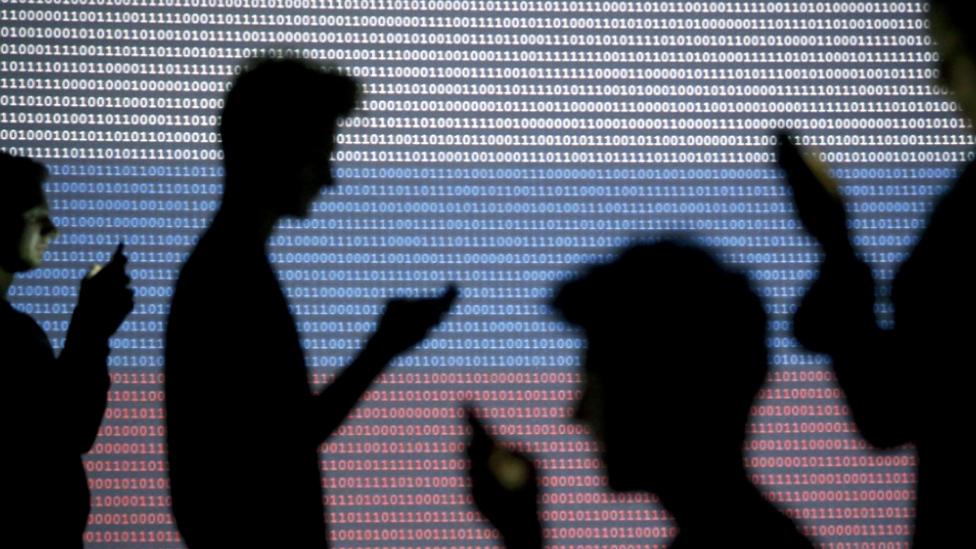Trump son's Clinton claim denied by Russian lawyer
- Published
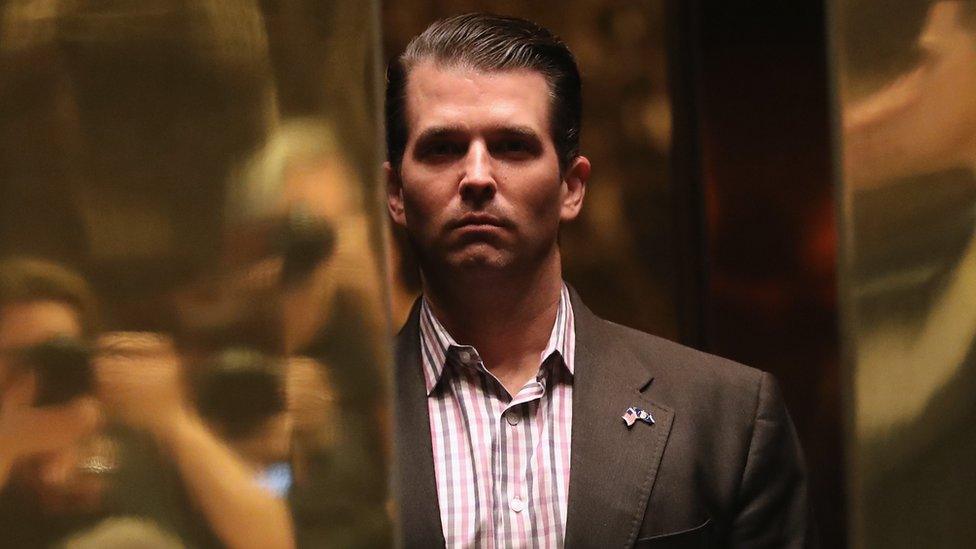
Donald Trump Jr said "no meaningful information" on Mrs Clinton was provided
The Russian lawyer at the centre of allegations surrounding US President Donald Trump's son has insisted she was never in possession of information that could have damaged Hillary Clinton.
Natalia Veselnitskaya said Donald Trump Jr and two senior campaign aides may have met her last summer because they were "longing" for such information.
Ms Veselnitskaya has been linked to the Russian government.
US officials are investigating alleged Russian meddling in the US election.
Mr Trump Jr was told that material on Democratic presidential candidate Mrs Clinton offered by Ms Veselnitskaya was part of Moscow's effort to help his father's election campaign, the New York Times reports, external.
Publicist Rob Goldstone, who arranged the meeting with Ms Veselnitskaya, stated this in an email, the newspaper says.
The president's son-in-law, Jared Kushner, and then-campaign head Paul Manafort also attended the meeting at Trump Tower in New York in June 2016.
Ms Veselnitskaya told US broadcaster NBC on Tuesday: "I never had any damaging or sensitive information about Hillary Clinton. It was never my intention to have that."
Ms Veselnitskaya said the meeting was set up by a man she did not know who told her by telephone to go to Trump Tower.
Mr Trump Jr asked her just one question during the meeting, she said.
"The question that I was asked was as follows: whether I had any financial records which might prove that the funds used to sponsor the DNC [Democratic National Committee] were coming from inappropriate sources.
"It is quite possible that maybe they were longing for such information. They wanted it so badly that they could only hear the thought that they wanted."
Ms Veselnitskaya denied ever having worked for the Russian government.
In a tweet sent after Ms Veselnitskaya's interview with NBC, Mr Trump Jr accused the media and Democratic Party of focusing on a "nonsense meeting" and of "desperation".
Separately on Tuesday, Russian officials said Moscow was ready to expel 30 US diplomats and seize US state property in retaliation for sanctions imposed by President Barack Obama over Russian hacking of Democratic Party computers.
What is in the latest New York Times article?
The newspaper reports that three people with knowledge of the Goldstone email said it indicated the Russian government was the source of the potentially damaging information on Mrs Clinton.
But it says there was no mention in the email of any wider effort by the Russian government to interfere in the election, nor was there any indication of a link to the hacking attack on the Democratic Party that was first reported a week after the meeting.
Mr Goldstone has previously denied any knowledge of involvement by the Russian government.
Adam Schiff, the top Democrat on the House Intelligence Committee, told MSNBC that the New York Times report was "a very serious development" that required further investigation.
Mr Trump Jr's statement on the matter on Sunday, external did not indicate he had been told of any Russian government involvement.
Lawyer Alan Futerfas, hired by Mr Trump Jr to represent him in the Russia-related investigations, described reports of the meeting as "much ado about nothing" and said his client had done nothing wrong.
The president's son said, external he was "happy to work with the committee to pass on what I know".
When was the meeting and how did it come to light?
It took place on 9 June 2016, just two weeks after Donald Trump secured the Republican nomination.
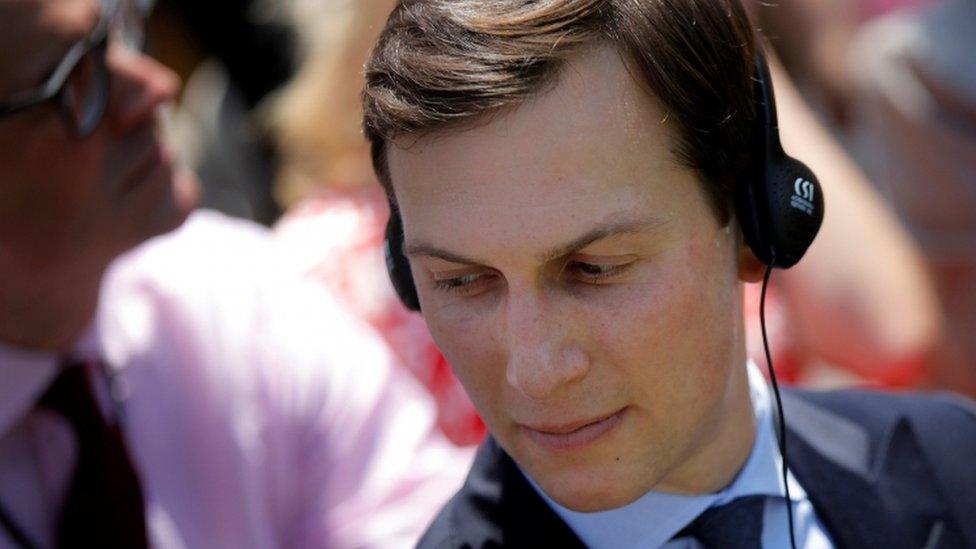
The president's son-in-law, Jared Kushner, was also at the meeting
After the New York Times, external first reported the meeting on Saturday, Mr Trump Jr released a statement which confirmed that it had taken place but did not mention whether it was related to the presidential campaign.
However, another Times report, external, on Sunday, said Mr Trump Jr had agreed to the meeting after being offered information that would prove detrimental to Mrs Clinton.
In his statement on Sunday, Mr Trump Jr said he had been asked to meet "an individual who I was told might have information helpful to the campaign".
What was discussed at the meeting?
Mr Trump Jr's statement continues: "The woman stated that she had information that individuals connected to Russia were funding the Democratic National Committee and supporting Mrs Clinton.
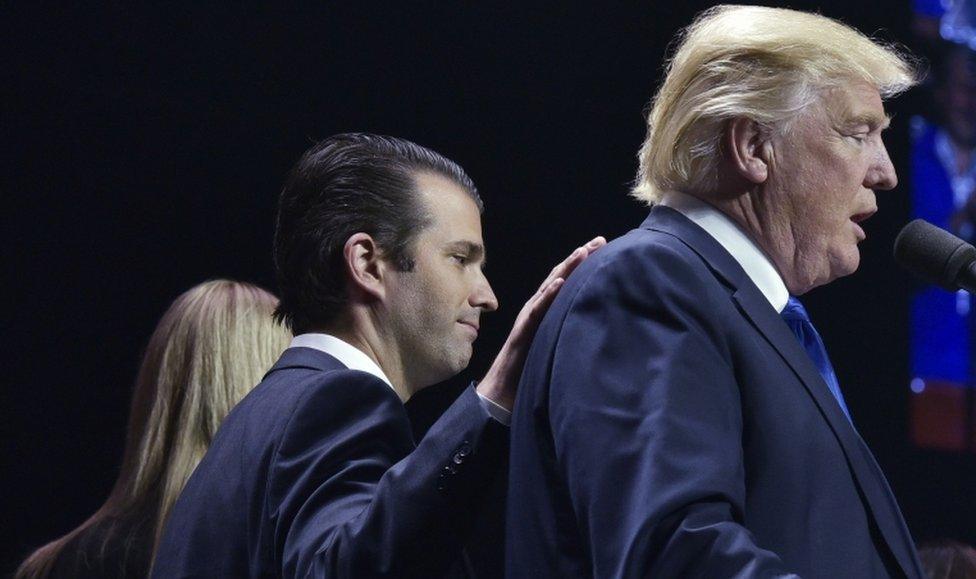
Mr Trump Jr has denied issuing conflicting statements on the matter
"Her statements were vague, ambiguous and made no sense. No details or supporting information was provided or even offered. It quickly became clear that she had no meaningful information."
Mr Trump Jr said the lawyer then changed the subject to the Magnitsky Act and "it became clear to me that this was the true agenda all along".
Adopted by Congress in 2012, the Magnitsky Act allows the US to withhold visas and freeze financial assets of Russian officials thought to have been involved in human rights violations.
Ms Veselnitskaya is married to a Moscow government official and her clients include companies and individuals said to be close to the Kremlin. She has been at the forefront of a campaign - backed by the Russian state - to overturn the act.
In an interview on Monday, Mr Goldstone backed Mr Trump Jr's version of the meeting, saying Ms Veselnitskaya offered "just a vague, generic statement about the campaign's funding" which was "the most inane nonsense I've ever heard".
On Monday, Mr Trump Jr tweeted, external sarcastically: "Obviously I'm the first person on a campaign to ever take a meeting to hear info about an opponent..." He also denied, external issuing conflicting statements.
A spokesman for President Trump's legal team said the president was "not aware of and did not attend" the meeting.

Analysis: A grim situation for Trump Jr
Anthony Zurcher, BBC North America reporter
Whether by plan or happenstance, Donald Trump Jr is stumbling into an increasingly dire situation.
The pattern has been set. The New York Times runs a story, Trump Jr issues his response, then the noose tightens.
First he said the meeting with Russian lawyer Natalia Veselnitskaya was about adoption issues. Then the Times reports that Trump Jr thought he would learn damaging information about Hillary Clinton.
The presidential son says he was conducting routine opposition research. Then the Times reports that he was told it was the Russian government itself that was coming to his father's aid.
In a traditional campaign, a foreign government's attempt to offer incriminating information about an opponent - or even the hint of such an overture - would set off all kinds of alarms. The FBI would have been notified. Senior staff would have insulated themselves from incrimination.
The Trump team was not a conventional campaign. And time and time again, it made novice mistakes or, more ominously, took unprecedented risks.
Its candidate prevailed, but it has led to countless political headaches. Now it appears the president's own family, and his presidency itself, could be in peril. They have only themselves to blame.

Why is Russia the focus of US investigations?
It is alleged that Russian hackers stole information linked to the Clinton campaign and passed it to Wikileaks so it could be released and help tip the election towards Mr Trump.
"Putin hates Clinton" and other things the FBI has learned about Russia, from the testimony of former FBI boss, James Comey
Congressional committees and a special prosecutor are investigating whether there was any collusion between the Trump team and the Russians.
The investigations have yet to reveal any evidence of collusion, something the president has always denied.
Last week Mr Trump said interference in the election "could well have been" carried out by countries other than Russia and interference "has been happening for a long time".
- Published11 July 2017
- Published14 September 2018
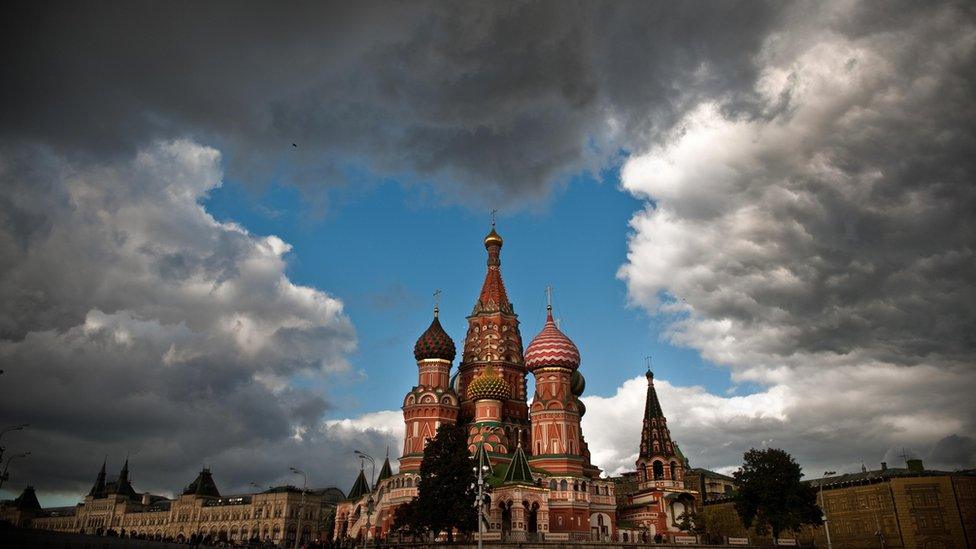
- Published30 March 2017
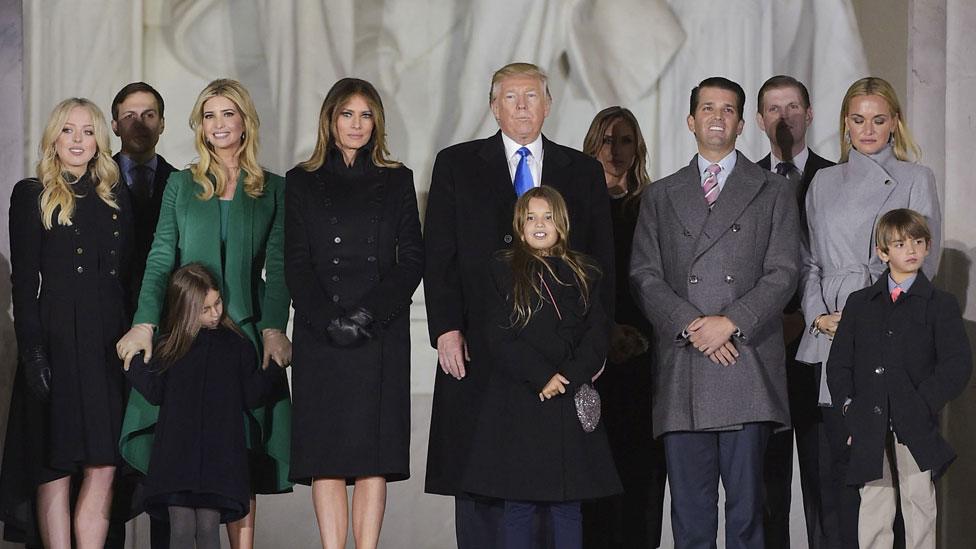
- Published11 July 2013
- Published24 December 2020
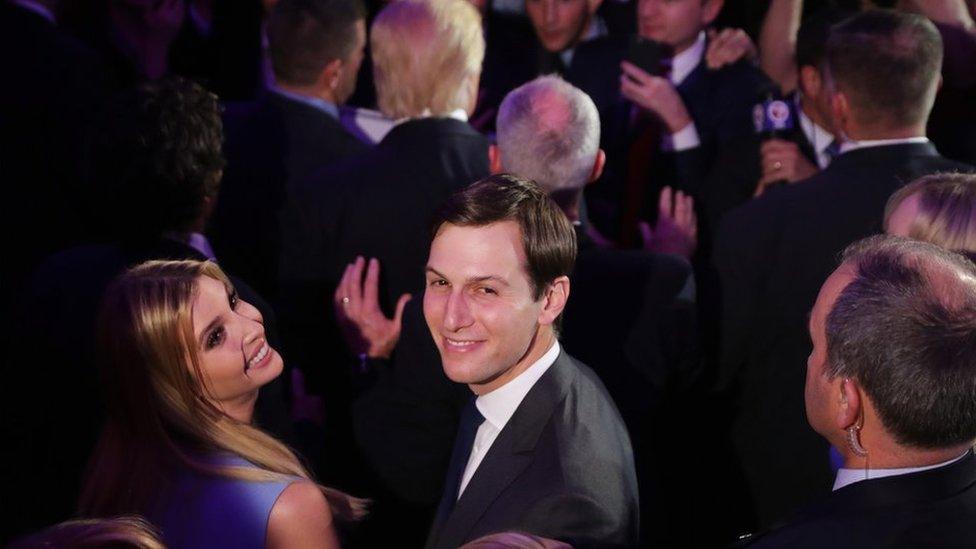
- Published28 August 2020
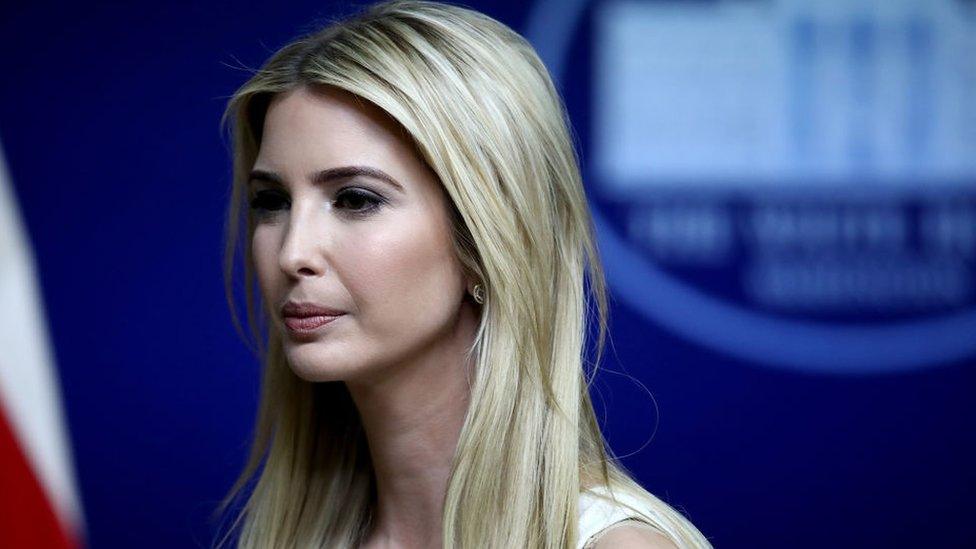
- Published22 December 2016
